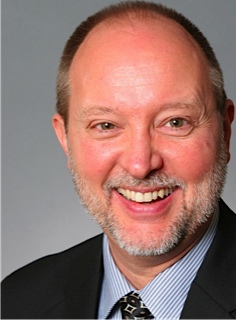Start learning today!
Get early access to learning opportunities from Journalism Courses by the Knight Center.

The smartphone has become a necessary tool for today’s journalist. It allows reporters to gather audio, video, photos and be able to curate and distribute news while on the go. Find out how to make the most of your smartphone for newsgathering and reporting in a four-week online course offered in English by The Knight Center for Journalism in the Americas. Click here to apply.
The course, entitled “Introduction to Mobile Reporting,” will be taught by professor Gary Kebbel, mobile expert and a veteran journalist. The course will be offered from April 22 through May 19.
Journalists can apply to this course until April 10 by 5 p.m. (Austin, Texas time). More details about the course can be found here.
This course is designed for journalists who are seeking to learn how to use their smartphone effectively for newsgathering and reporting. Journalists will learn why news organizations are adopting mobile strategies, information on mobile media usage, how to cover and publish breaking news from the field with stories, photos and video, how to use local information apps to learn more about a community and how to use social media as a news reporting and discussion tool.

According to Kebbel, the mobile platform — and its use for news consumption — is becoming more pervasive in society.
“Mobile media are the most common communication media in the world,” Kebbel said. “They span all the digital divides: young-old, rich-poor, urban-rural, educated-uneducated and national-international. They are the media of the future. Young people who have never picked up a newspaper, still read news daily on their phones and tablets. To reach their future audience, reporters need to go where that audience is and use the tools that audience is using. That means mobile devices.”
Students who are selected into the course will pay an administrative fee of US$60. This low cost is possible thanks to the support the Knight Center receives from donors like Knight Foundation and Open Society Foundations. The fee is payable only online with a credit card.
Participants in this class will only use apps that come with their phone or that are common, free and quickly downloaded from an app store.
This class does not require advance knowledge of mobile media reporting or discussion techniques. Participants of this course will experiment using apps and new tools and will discuss their observations. Discussion of what class participants are trying and what is working for them will be an important part of the class.
Kebbel is a journalism professor at the University of Nebraska-Lincoln, where he is working to create a Center for Mobile Media with funding from the John S. and James L. Knight Foundation and the Ford Foundation. Formerly, he was dean of the UNL College of Journalism and Mass Communications for two years. During that time, the college created the nation’s first Drone Journalism Lab. Before joining UNL, Kebbel was the journalism program director at the John S. and James L. Knight Foundation in Miami, where he administered the Knight News Challenge, a $25 million contest to fund digital news innovations and experiments.
He is a founding editor of USA TODAY.com and Newsweek.com. As News Director at AOL, he helped build one of the largest news and social sites on the Internet. Kebbel is a Fulbright Senior Specialist who did his Fulbright work in South Africa. He is a member of the U.S.-Russia Bilateral Presidential Commission subgroup on media. He holds master’s degrees in journalism and in political science from the University of Illinois, and a master of social work degree from the Catholic University of America.
This online course is divided into weekly modules containing multimedia presentations and links to online resources. Most of the course activities can be followed in the days and times most appropriate for each student. Exercises, online discussions and additional assignments will also be part of the curriculum. Participants can expect to spend 6-10 hours per week on the course.
The course will be taught using the Knight Center’s distance learning platform that has benefited more than 7,000 journalists from Latin American and the Caribbean, since it was created in the fall of 2003. On completion of the course persons will receive a Knight Center certificate of participation.
The Knight Center for Journalism in the Americas was created in 2002 by Professor Rosental Alves at the University of Texas at Austin School of Journalism, thanks to a generous donation from the John S. and James L. Knight Foundation. The Center also receives contributions from other donors, including the Open Society Foundations and The University of Texas at Austin. The Center’s main goal is to help journalists in Latin American and the Caribbean improve the quality of journalism in their countries.
Get early access to learning opportunities from Journalism Courses by the Knight Center.